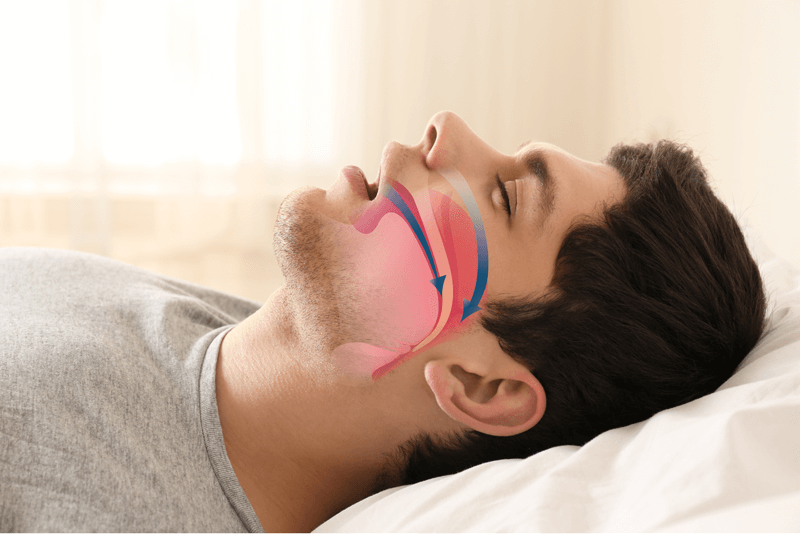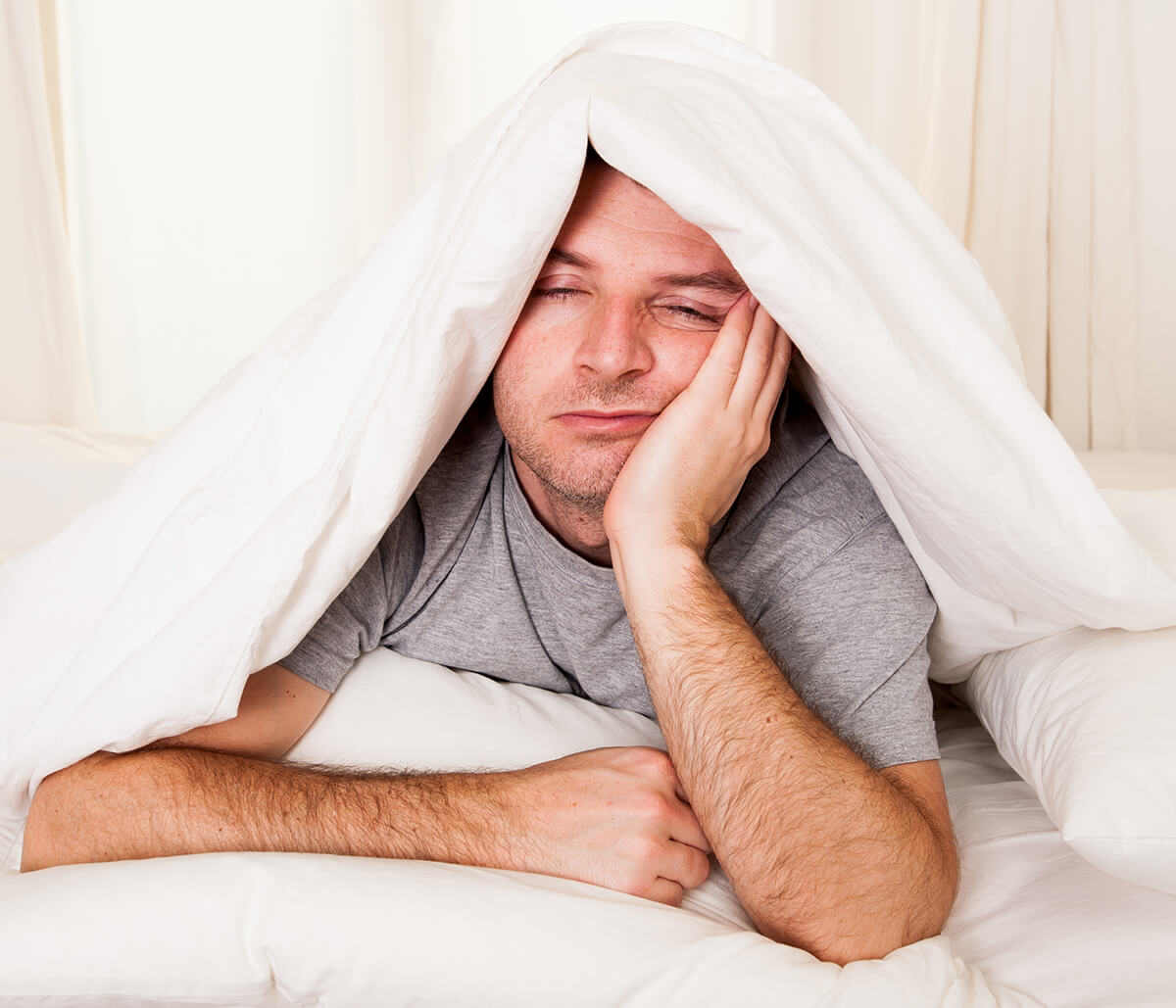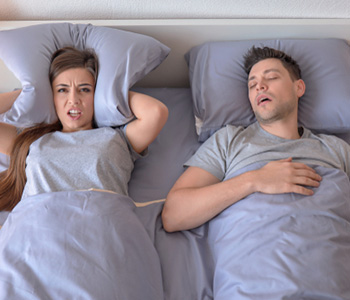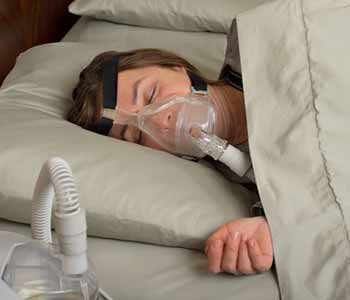Obstructed Airways and Sleep Apnea
Sleep apnea is a condition that can be easily mistaken as chronic snoring. There are significant differences between the two; differences that can have an enormous effect on general health and wellbeing. According to the National Institutes of Health, as many as 70 million people in our country may have this condition, with many thinking they only snore. Due to the health implications of sleep apnea and obstructed airways, obtaining an accurate diagnosis is imperative.

About Sleep Apnea
Functional breathing allows air to pass through the throat and the windpipe and into the lungs. While we are awake, muscles around the throat, neck, and windpipe keep the airway open. Many people experience closing of the airway when muscles fully relax in sleep. Snoring occurs as air passes through a partially closed airway, causing vibrations in soft tissues. Obstructive sleep apnea goes a step beyond snoring.
Some people, when they sleep, will experience the full closure of the airway. This may initially sound like very loud snoring, before the airway becomes completely blocked by tissue. Loud noise, however, is marked by moments of silence. This means that air has stopped moving into the lungs, and that no oxygen is being delivered to the brain and body.
After a short silence, the person with obstructive sleep apnea may gasp or choke before snoring resumes. This pattern may occur several hundred times in a given night. Frighteningly, the affected person may be completely unaware of what is happening because the sleeper is typically never fully roused.
Some of the symptoms that may indicate obstructive sleep apnea include:
- Chronic fatigue even with ample sleep
- Frequent morning headaches or sore throat
- Difficulty concentrating or remembering information
- Poor work performance
- Tendency toward clumsiness
- Irritability or unstable mood swings
Help for obstructive sleep apnea can be found in the office of your Nashua dentist
Though medical treatment for sleep apnea exists, statistics show that compliance with CPAP is quite low due to unpleasant side effects. At Nashua Cosmetic and Restorative Dentistry, P.L.L.C., patients with chronic snoring and sleep apnea may benefit from the design and use of a custom-fit oral appliance. This discreet, comfortable mouthpiece is worn during sleeping hours. Gently repositioning the jaw, the oral appliance prevents closure that robs the body of oxygen and the patient of healthy sleep.
For more information on sleep apnea treatment, contact our New Hampshire dental office.











